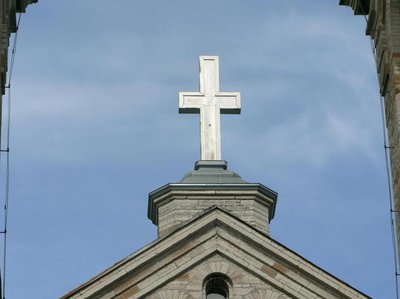Thoughts for the Day
Wednesday, 7th June 2023: Clearing out the Temple
2 Chronicles 29 Temple Covenant Yahweh God
Reading : Verses from 2 Chronicles, Chapter 29

Hezekiah began to reign when he was twenty-five years old; he reigned for twenty-nine years in Jerusalem. He did what was right in the sight of the Lord, just as his ancestor David had done. In the first year of his reign, in the first month, he opened the doors of the house of the Lord and repaired them. He brought in the priests and the Levites and assembled them in the square on the east. He said to them, ‘Listen to me, Levites! Sanctify yourselves, and sanctify the house of the Lord, the God of your ancestors, and carry out the filth from the holy place. For our ancestors have been unfaithful and have done what was evil in the sight of the Lord our God.... Now it is in my heart to make a covenant with the Lord, the God of Israel, so that his fierce anger may turn away from us. My sons, do not now be negligent, for the Lord has chosen you to stand in his presence to minister to him, and to be his ministers and make offerings to him.’
Then the Levites arose..... they gathered their brothers, sanctified themselves, and went in as the king had commanded, by the words of the Lord, to cleanse the house of the Lord. The priests went into the inner part of the house of the Lord to cleanse it, and they brought out all the unclean things that they found in the temple of the Lord into the court of the house of the Lord; and the Levites took them and carried them out to the Wadi Kidron.... Then for eight days they sanctified the house of the Lord, and on the sixteenth day of the first month they finished. Then they went inside to King Hezekiah and said, ‘We have cleansed all the house of the Lord,."
(Lectionary, New Revised Standard Version)
Thoughts
Hezekiah (born 641 BCE) was king of Judah and was known for his piety. After the pagan practices introduced by King Ahaz (his co-Regent) who had submitted to the Assyrian threat, he set about reforming religious practice and the worship of Yahweh (ie God), cleaning out the Temple and teaching the people.
We may think the account of a king born seven centuries before Christ cannot be of much importance today, but re-reading the story made me think of the many churches where I have worked over the years, and the places where I have prepared to lead worship. I have discovered fridges and brooms in the vestry; rooms full of flower-arranging clutter including foul-smelling vases full of water; the lawn mower and garden equipment; and many cupboards full of old worn-out robes and altar cloths. This usually went along with a sanctuary full of dust, dirt and dead flies, as well as mirrors too high for me to see in (sorry, a real bête noire of a short person!).
If worship of the Almighty is important then so is cleanliness of all that we use in worship - perhaps this is where the saying "Cleanliness is next to Godliness" comes from! Only the best is good enough for God, not least so that we can lift our souls to Him in worship each time we go to church.
Prayer
Heavenly Father,
may we not offer You second-best
in our churches and chapels.
May we recognise the need to
lift our souls to You
even when the surroundings are humble.
May we learn to do the very best
by repairing and cleaning
everything we use in worship,
and in doing so refresh our spirits
and reconnect with You.
Amen.
For those who would like a good account of the meaning of the word Yahweh in the Bible, look up this: